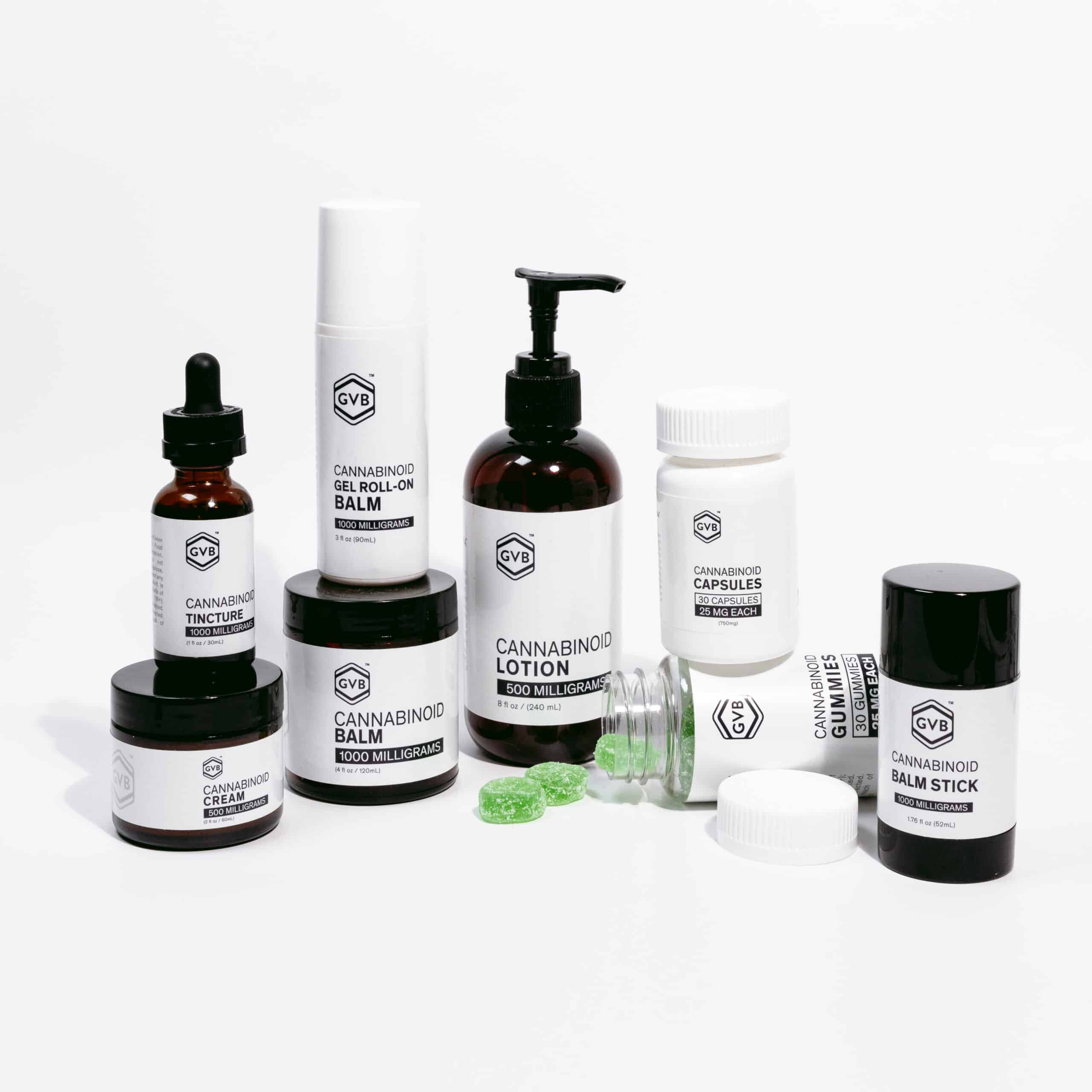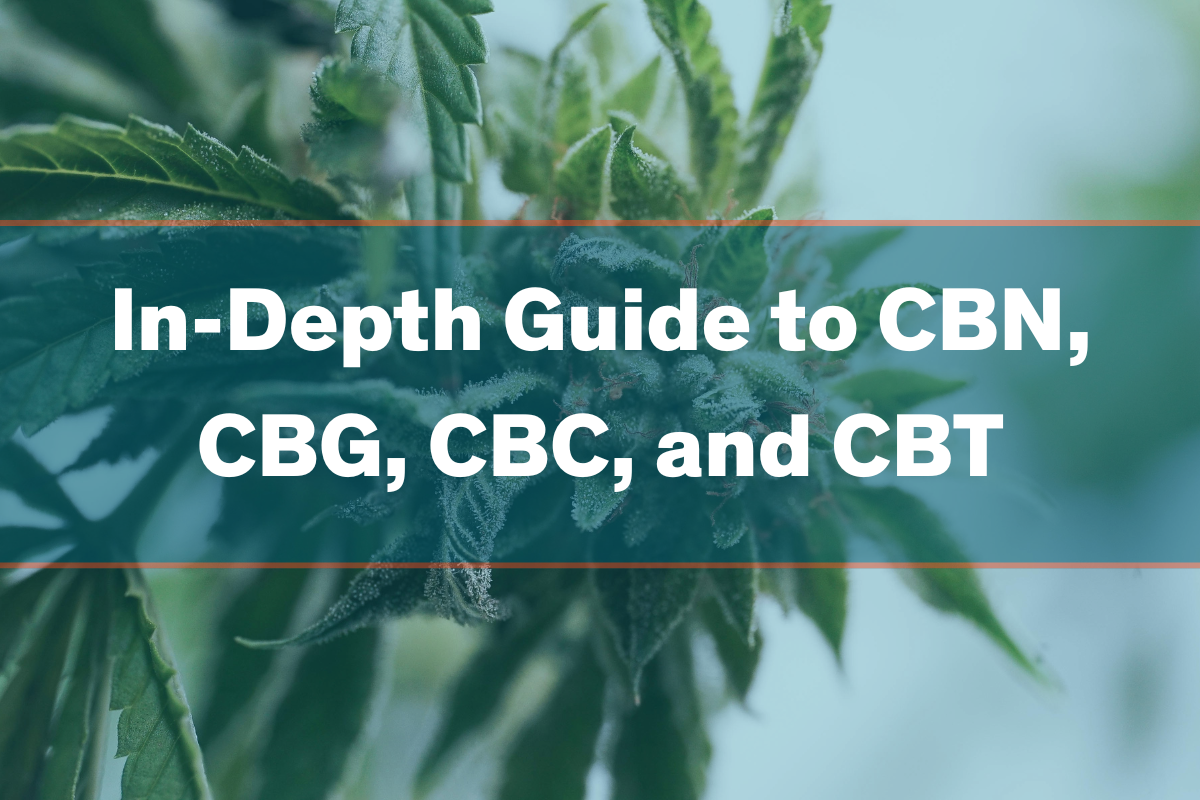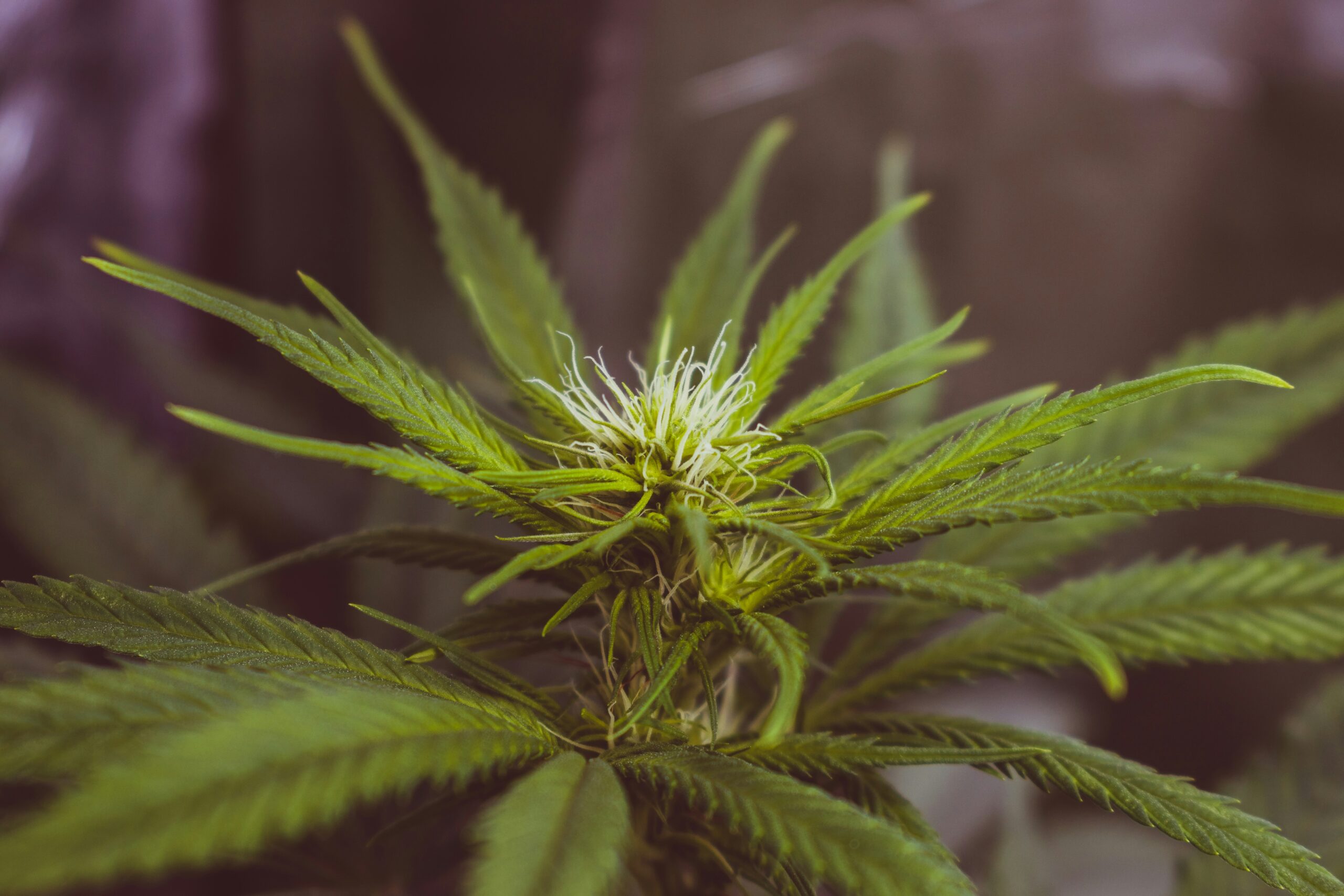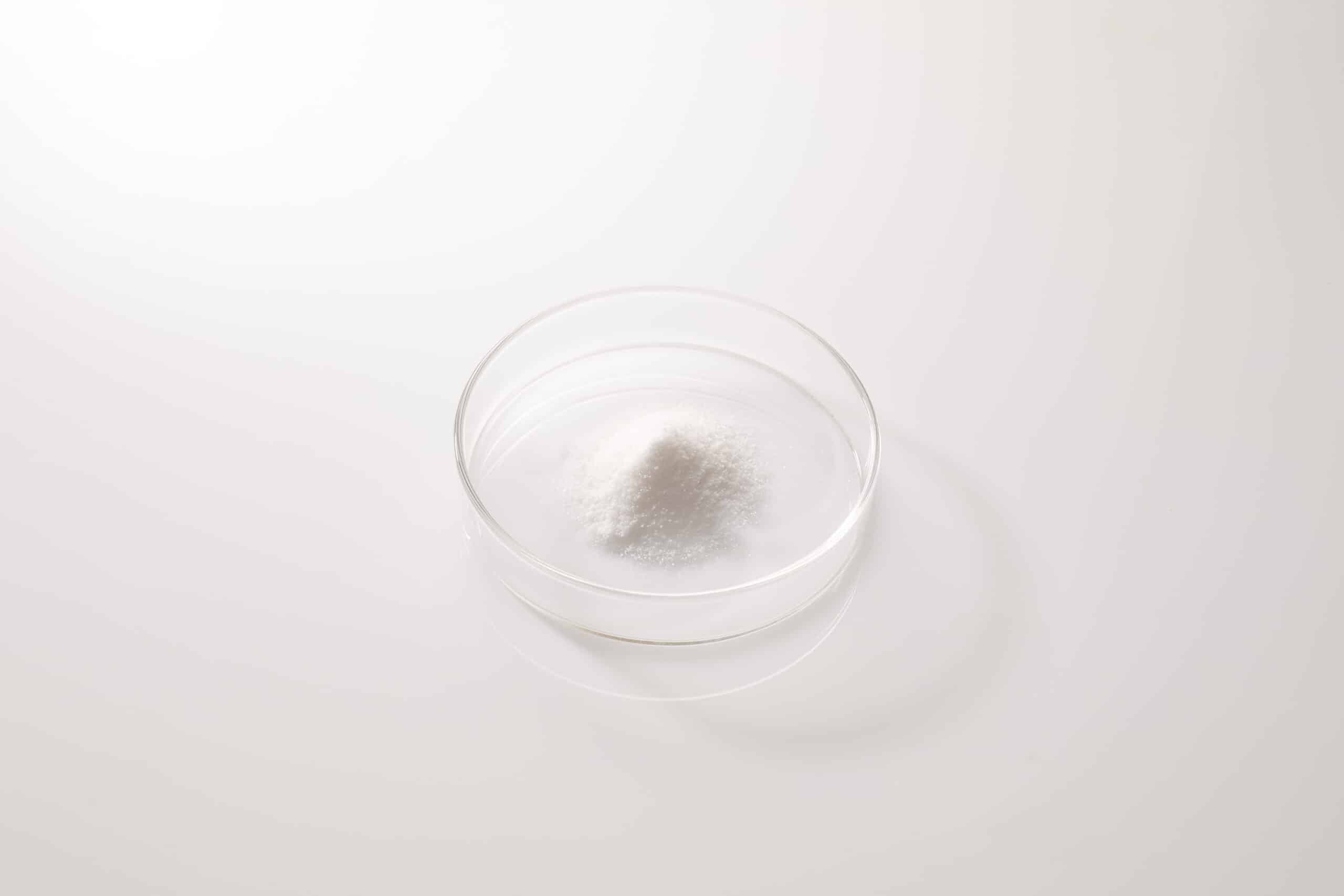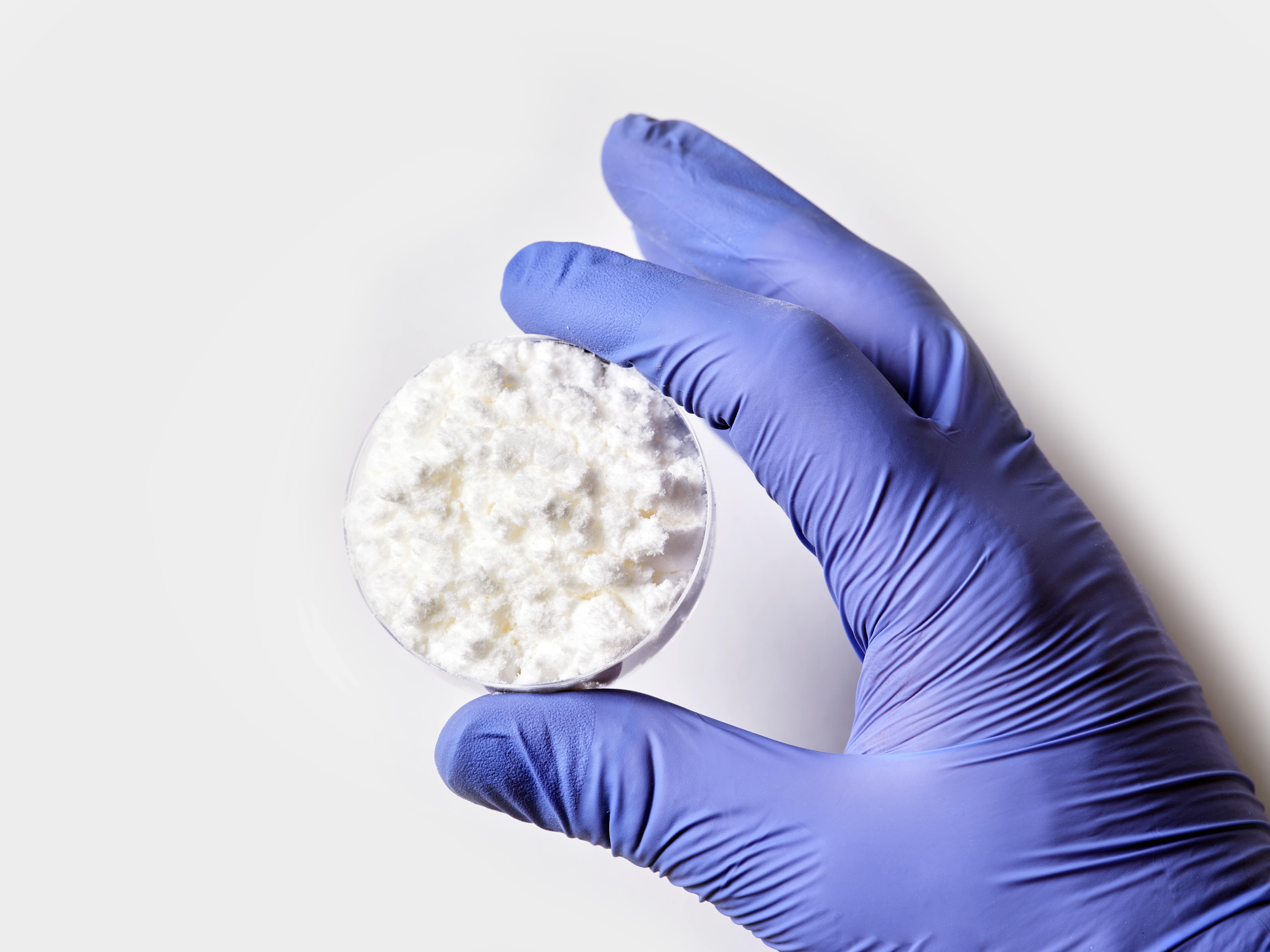None of the information mentioned in this article should be taken as nutritional advice.
The role cannabinoids play in nutrition is often overlooked in discussions of the science of cannabis. It’s generally understood that cannabinoids like CBD and THC don’t have any direct nutritional value, and this assumption is essentially true.
The story of cannabinoids and nutrition goes much deeper, though. In this guide, familiarize yourself with the basics of cannabis nutrition, and discover all the ways cannabinoids might impact human nutrition.
Basics of nutrition
The human body needs a variety of substances called nutrients to survive. Nutrients promote growth, provide nourishment and energy while maintaining life. These substances are generally separated into “macronutrients,” which are needed in great quantities, and “micronutrients,” which are needed in much smaller quantities. Examples of essential macronutrients include fat, protein and carbohydrates while, examples of essential micronutrients include vitamin C, calcium, and zinc.
The human body only flourishes when provided with a diet filled with essential macronutrients and micronutrients. These nutrients are found in many different forms of Cannabis sativa plant and animal life, and the Cannabis sativa plant has been identified as a great source of certain essential and non-essential macronutrients and micronutrients.

Can you eat cannabis?
Yes, every part of the Cannabis sativa plant is edible, and cannabis appears to have considerable nutritional value. The fibrous stalks and leaves, while not optimal for human digestion, are excellent sources of certain dietary fibers. s contain large amounts of nutrients, including protein, minerals, fatty acids, and dietary fiber. The fatty acids in hemp seeds are rich in the highly beneficial omega fatty acids.
While the whole cannabis plant is technically edible, only certain parts of the plant are ideal for human consumption. Traditionally, cannabis seeds have been the most commonly used for nutritional purposes, though the eating of cannabis leaves for their nutritional value is not unknown.
Does cannabis have nutritional value?
Yes, the various parts of cannabis offer nutritional value in different ways. The most nutritious part of the cannabis plant is the seed due to its high fat and protein content, but cannabis leaves are also notable for containing essential micronutrients. These include vitamin E, phosphorus, magnesium, potassium, iron, zink, and an array of B vitamins. Furthermore, cannabis flower may offer an indirect nutritional benefit due to the antioxidant activity of cannabinoids and terpenes.
Which parts of the cannabis plant are nutritious?
Let’s break down the nutritional value of cannabis part by part:
Do cannabis seeds have nutritional value?
Yes, even if they’re commonly overlooked in preference of hemp seeds for culinary purposes. Some inspired chefs include cannabis leaves in salads and other green dishes, and consuming cannabis leaves will provide your body with lots of essential macronutrients and micronutrients.
Which nutrients are contained in cannabis seeds?
According to the USDA, 2 tablespoons (28 g) of hemp seeds contain: 3.3 g carbohydrates, 9.2 g protein, 12.3 g fat, and 2 g fiber.
Hemp seeds are especially notable for containing all nine amino acids, offering a “complete” source of protein. They also contain abundant micronutrients including Vitamin E, Phosphorus, Magnesium, Potassium, B vitamins.
Do cannabis leaves have nutritional value? Yes, even if they’re commonly overlooked in preference of hemp seeds for culinary purposes. Some inspired chefs include cannabis leaves in salads and other green dishes, and consuming cannabis leaves will provide your body with lots of essential macronutrients and micronutrients.
Which nutrients are contained in cannabis leaves?
The main macronutrient present in cannabis leaves is dietary fiber. Leaves of cannabis and hemp plants also contain abundant micronutrients like Iron, Calcium, Vitamin K and Vitamin C.
Do cannabis stalks have nutritional value?
Cannabis stalks contain lots of dietary fiber, unfortunately these fibers are hard to digest when eaten raw or when added to dishes. Moreover, the micronutrient content in cannabis stalks is much lower than it is in cannabis leaves. As a result, stalks are generally not used for culinary purposes though they show great potential in industrial applications.
Do cannabis buds have nutritional value?
Cannabis buds contain the same amount of dietary fiber and micronutrients that are present in cannabis leaves, but the buds also contain cannabinoids and terpenes, powerful antioxidant compounds that may boost digestion indirectly. Cannabis buds should be ingested for their cannabinoid and terpene content since cannabis leaves will serve just as well for fiber and micronutrient purposes.
Do cannabinoids have nutritional value?
Cannabinoids, which are most abundant in the buds of cannabis and hemp plants, are not known to impart any direct nutritional value. They are not used in any of the metabolic systems that process micronutrients and macronutrients, but cannabinoids have been universally determined to have at least some degree of antioxidant activity.
As a result, ingesting cannabinoids orally may reduce digestive inflammation, thus improving the gut’s ability to absorb and process nutrients. Despite the lack of nutritional value in cannabinoids themselves, modern science is gradually coming to grips with the role oxidative stress may play in poor nutritional uptake, potentially making cannabinoids more important to nutrition than any other part of the hemp plant.

Could cannabinoids boost nutrition in other ways?
Despite not offering any nutritional value as micronutrients or macronutrients, certain cannabinoids may boost the overall functioning of your digestive system, making it easier for your body to process waste and send essential nutrients where they need to go. Let’s take a look at the available research on the impact of cannabinoids on oxidative stress and digestion:
Research into cannabinoids and digestion
The abstract of a 2005 academic paper on the role of cannabinoids in digestion begins by noting that the body uses endocannabinoids (body-generated cannabinoid-like compounds) extensively in the digestion process. Since phytocannabinoids (cannabinoids found in plants like cannabis) dramatically impact the operation of endocannabinoids in the body, the authors of this paper postulate that phytocannabinoids like CBD and THC may be valid targets of research into novel therapies for digestion-related conditions.
This research was followed up by a 2015 study into the impact of cannabinoids on the gut’s mucosal defense barrier. The authors of the study concluded that “the endocannabinoid system represents a promising target in the treatment of inflammatory bowel diseases,” indicating that cannabinoids may have a profound indirect impact on the digestion process.
Research into cannabinoids and inflammation
Your body’s ability to uptake nutrients is hampered by inflammation. Researchers have studied the anti-inflammatory potential of cannabinoids like CBD and THC in great detail, and both cannabinoids show promise in different ways. CBD has been researched extensively for its potential ability to combat almost every type of inflammation, gradually replacing THC as the primary target of cannabinoid inflammation research, a seemingly anti-inflammatory cannabinoid that nonetheless can cause unwanted inflammation under certain circumstances.
Do terpenes boost the digestive benefits of cannabinoids?
Unless ingested in isolated form, cannabinoids are always accompanied by terpenes, which along with flavonoids provide cannabis with its delicious flavors and aromas. In addition to their culinary value, terpenes are universally believed to offer anti-inflammatory benefits 6 to varying degrees. If you’re consuming cannabinoids for digestive purposes, therefore, it would make sense to ingest products that also contain natural terpenes found in cannabis.
While scientists have determined that virtually all discovered terpenes have some degree of anti-inflammatory or antioxidant potential, each terpene has a different chemical makeup and unique effects. Some of the terpenes that have been investigated for anti-inflammatory effects include limonene, pinene, myrcene and caryophyllene.
What are the best ways to consume cannabis for nutrition?
To take advantage of any potential nutritional benefits cannabinoids may impart, you will need to consume these cannabis compounds orally. Out of the various oral ingestion methods available for cannabinoids, capsules offer the greatest simplicity and purity while tinctures and gummies offer more opportunities for customization. It’s also possible to consume cannabis concentrate on its own, but research indicates that carrier oils improve the bioavailability of oral cannabinoids, which would make properly formulated oral cannabinoid products more effective.
The bottom line: Is cannabis a superfood?
Cannabis is often touted as a “superfood,” a popular term for a substance that has higher-than-usual nutritional benefits. This term might apply to the seeds of the cannabis plant, but the direct nutritional uses of other cannabis components appear to be much less impressive.
As we’re learning, though, nutrition is about a lot more than just the volume of macronutrients and micronutrients you ingest. The human gut is an extremely complex ecosystem with more than 100 million nerve endings, and modern science is gradually unveiling the massively important role inflammation plays in overall health.
Due to their impact on inflammation, cannabinoids may play a major, if indirect, role in human nutrition. The human digestive tract is, after all, largely controlled by a system composed of endogenous cannabinoid compounds, and cannabinoids like CBD and THC have been widely demonstrated to significantly impact the operation of the endocannabinoid system.
There are better ways to ingest cannabinoids and the other beneficial substances in cannabis than eating raw cannabis plants, though. Cannabis may only reach true “superfood” status when prepared into finished, formulated products. Cannabinoid-rich capsules, tinctures, and edibles, for instance, maximize the potential indirect nutritional value of cannabinoids while doing away with the unpalatable or inconvenient components of cannabis.
Cannabinoid nutrition facts FAQ
Learn more about the nutritional value of CBD and other cannabinoids below:
1. Does CBD have nutritional value?
Any potential nutritional value that CBD may offer has not yet been assessed. As we have discussed in this guide, CBD is not generally pursued its nutritional benefits but rather for its potential therapeutic properties. Scientists of the future may determine that CBD is useful for some nutritional purpose or another, but at this point, it remains unclear if CBD has any dietary value.
2. Does CBN have nutritional value?
We do not yet know if the cannabinoid cannabinol (CBN) has any nutritional value, but based on what we know about CBD, the chances are relatively small. Even though they may have differences that are significant from the point of view of medical science, cannabinoids share a basic chemical structure that does not appear to impart any nutritional value to the human digestive system. It would be very unlikely if CBN proved to be the exception to this rule.
3. Does CBG have nutritional value?
No, there is no evidence yet that the cannabinoid cannabigerol (CBG) offers any nutritional value. Like other cannabinoids, CBG has a chemical structure that does not appear to provide the body with energy or any other form of nutrition. Put another way, you cannot subsist on CBG just as you cannot subsist on any other discovered cannabinoid.
4. Are cannabinoids good for the body?
Despite the fact that scientists have not discovered any nutritional value in cannabinoids, these substances still appear to offer a great deal of bodily benefits. Some cannabinoids, for instance, appear to help with inflammation, which is the root cause of many serious medical conditions. As we learn more about cannabinoids, we’ll be able to make more definitive statements regarding the benefits they might offer the human body.
Sources
- 1. Tan, B. L., Norhaizan, M. E., & Liew, W. P. (2018). Nutrients and Oxidative Stress: Friend or Foe?. Oxidative medicine and cellular longevity, 2018, 9719584. https://doi.org/10.1155/2018/9719584
- 2. Izzo, A. A., & Coutts, A. A. (2005). Cannabinoids and the digestive tract. Handbook of experimental pharmacology, (168), 573–598. https://doi.org/10.1007/3-540-26573-2_19
- 3. Gyires, K., & Zádori, Z. S. (2016). Role of Cannabinoids in Gastrointestinal Mucosal Defense and Inflammation. Current neuropharmacology, 14(8), 935–951. https://doi.org/10.2174/1570159×14666160303110150
- 4. Atalay, S., Jarocka-Karpowicz, I., & Skrzydlewska, E. (2019). Antioxidative and Anti-Inflammatory Properties of Cannabidiol. Antioxidants (Basel, Switzerland), 9(1), 21. https://doi.org/10.3390/antiox9010021
- 5. Nagarkatti, P., Pandey, R., Rieder, S. A., Hegde, V. L., & Nagarkatti, M. (2009). Cannabinoids as novel anti-inflammatory drugs. Future medicinal chemistry, 1(7), 1333–1349. https://doi.org/10.4155/fmc.09.93
- 6. Gallily, R., Yekhtin, Z., & Hanuš, L. O. (2018). The Anti-Inflammatory Properties of Terpenoids from Cannabis. Cannabis and cannabinoid research, 3(1), 282–290. https://doi.org/10.1089/can.2018.0014
- 7. Stella, B., Baratta, F., Della Pepa, C. et al. Cannabinoid Formulations and Delivery Systems: Current and Future Options to Treat Pain. Drugs 81, 1513–1557 (2021). https://doi.org/10.1007/s40265-021-01579-x
- 8. Aidan J. Hampson, Julius Axelrod, Maurizio Grimaldi, (1999). Cannabinoids as antioxidants and neuroprotectants (US09/674,028).US Department of Health and Human Services. https://patents.google.com/patent/US6630507

